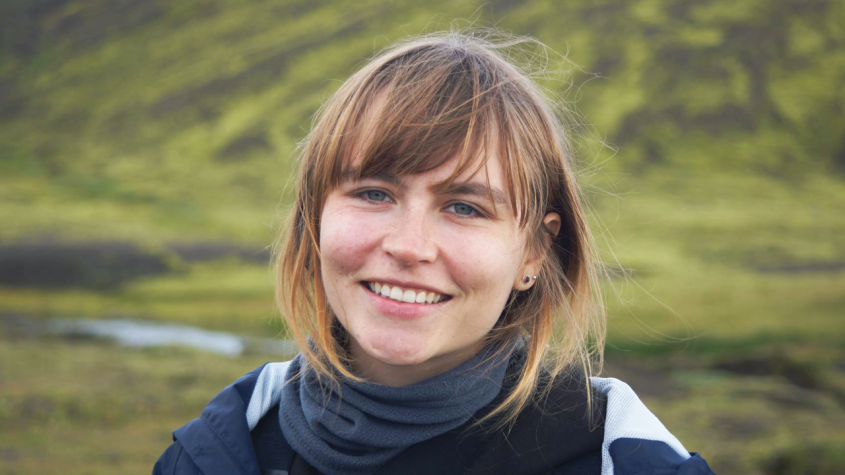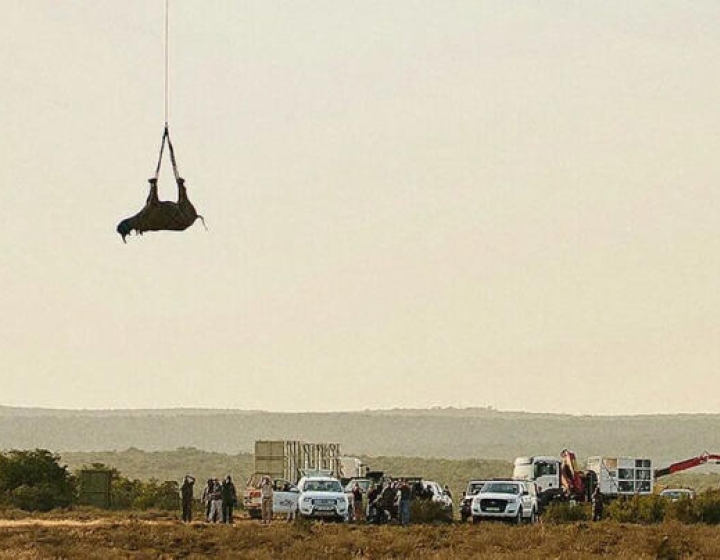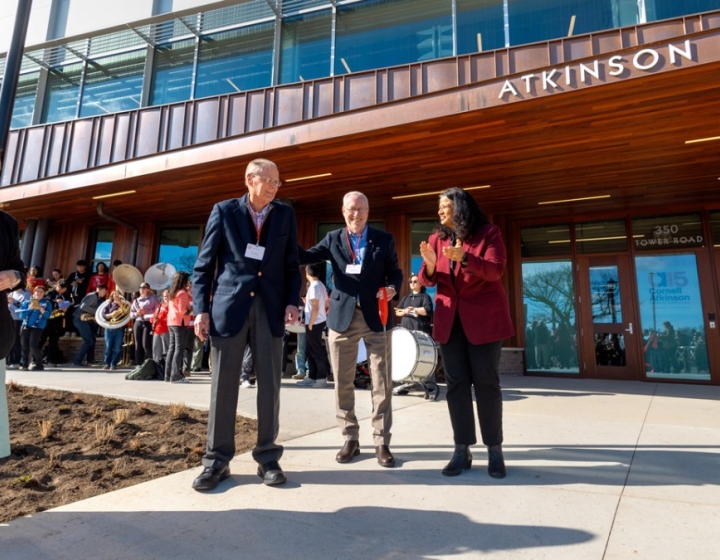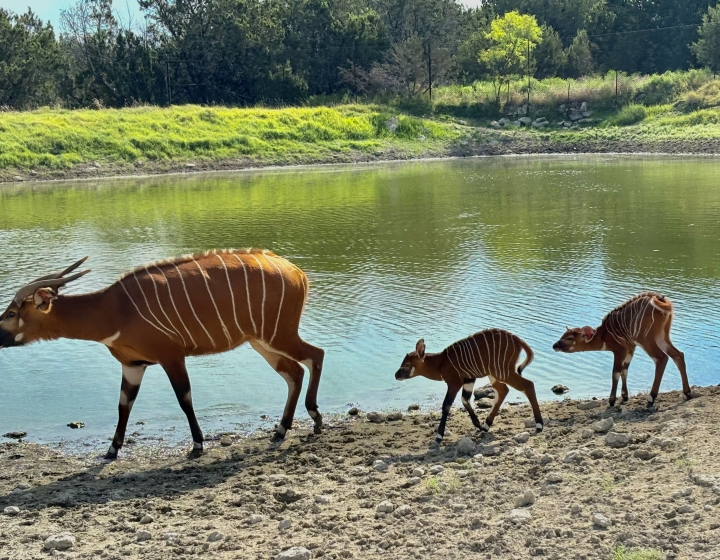New faculty profile: Dr. Amandine Gamble
The Cornell University College of Veterinary Medicine has recently welcomed many new faculty members to our academic departments, each one bringing a unique set of skills and experience that enriches our college every day. In this Q&A series, you'll get to know their interests, expertise and more.
Dr. Amandine Gamble, assistant professor, Department of Public and Ecosystem Health
Q: What has been your path leading to Cornell?
My academic path actually started in vet school, at Alfort National Veterinary School in France. I had always been appealed to STEM, but knew nothing about academic research. It was only later during my vet studies that I discovered research. After vet school, I jumped fully into research with a master’s of science in animal behavior at Strasbourg University, then a Ph.D. in population biology and ecology at Montpellier University. I eventually left my home country to do a postdoc at University of California Los Angeles and another one at University of Glasgow to focus on my mathematical modeling skills. I made a few detours in the Arctic and Subantarctic for fieldwork on the way.
Q: What drew you to CVM?
The diversity of expertise and capacity in the College of Veterinary Medicine, and more broadly at Cornell. My research integrates concepts and methods from ecology, epidemiology, microbiology, and I can find colleagues to work on all those questions right here at Cornell.
Q: What is your academic area of expertise?
I study infectious disease ecology, with a focus on pathogen dynamics in wildlife and at the human-wildlife interface.
Q: What drew you into this area? Any specific experiences, mentors or influences that helped guide you?
I kind of accidentally discovered ecology, and research more broadly, during my vet studies thanks to one of my teachers, Dr. Caroline Gilbert. She was teaching animal behavior with a focus on domestic animals, while also conducting research on wildlife behavior and ecology. I got curious and decided to give it a go. She guided me into the process of transitioning from vet school to academic research. I never looked back! My expertise in veterinary medicine and my newly discovered interest in animal ecology naturally took me into the field of infectious disease ecology.
Q: What past professional work are you most proud of and why?
My work on infectious disease of subantarctic seabirds. It is a challenging field to work in, as it involves lots of months spent on remote islands and requires lots of different skills to conduct the science itself but also to handle the logistics. It is very rewarding though. I got to learn a lot about the drivers of pathogen dynamics in wildlife in general. For instance, some of my work suggests that introduced species could act as reservoirs for pathogens that would otherwise not persist in the system, opening the door to pathogen control via introduced species control. A particularly rewarding aspect of this work is to work with local communities to learn together what the animals they are cohabiting with are up to, the challenges they face and how we can help them.
Q: What about your academic work are you most excited about and why?
Everything that helps connect host ecology with pathogen dynamics. For instance, a bit part of my work involves tracking animal movements to see how they change across environmental conditions, and the impact it has on pathogen spread.
Q: What impacts or applications do you hope to see your work have on the world, human, animal or planetary health?
I hope my work will help identify how to mitigate infectious disease in wildlife using ecological solution instead of therapeutical solutions, so we can have a bigger and more sustainable impact on wildlife health and ultimately on the health of the whole ecosystem.
Q: What questions are you looking to answer next or areas you plan to explore?
How to mitigate infectious disease in wildlife with ecological solutions.
Q: What’s something most people don’t know about you?
People tend to think I am fond of outdoors activities because of all the fieldwork, but I am not. Unless it involves the most delicious picnic at the end.
Q: What’s the best part of your job?
The diversity of things we do. One day we are writing a project proposal, the day after we are collecting data in the field, the day after presenting our work at a conference, and the day after we are teaching our future colleagues. It is hard to get bored.
Q: What’s the most challenging part?
The pressure we put on ourselves. There is so much to do, so many questions to work on — it is hard to know where to put the threshold to not ending up doing too much.
Q: What are the benefits of working at CVM? At Cornell?
The ease of working with people from different fields. It is really easy to collaborate with people from all over the campus. It helps make our research relevant and impactful.






